2024-25

Maleeha Iqbal is a PhD student in the Department of Sociology at the University of Toronto. Her research interests lie within the fields of global migration, race/ethnicity, and qualitative methods, with a particular focus on South Asian and MENA communities. Her dissertation bridges the sociology of families and migration to examine the parenting practices of second-generation Muslim immigrants of South Asian and MENA descent in Canada, exploring how migration shapes collective identity across generations within these families, generating important insights for multicultural accommodation. Maleeha’s research is supported by the Social Sciences and Humanities Research Council of Canada (SSHRC) and the Ontario Graduate Scholarship (OGS), among other fellowships. Her research interests have also led her to pursue additional projects alongside her dissertation. She has written about Syrian refugees’ experiences of integration, assimilation, and belonging in Canada, focusing on family dynamics, housing, and employment. Maleeha’s work has been published in Mashriq & Mahjar: Journal of Middle East and North African Migration Studies, Refuge: Canada’s Journal on Refugees, and Journal of Immigrant & Refugee Studies. She has presented her research at conferences across Canada and the US, including the American Sociological Association (ASA), Canadian Sociological Association (CSA), and Middle Eastern Studies Association (MESA). Apart from research, Maleeha is passionate about teaching and has delivered guest lectures on topics related to anti-Muslim racism and the racialization of religion in undergraduate courses.

Adriana Perez-Rodriguez is a second-year PhD student in Women and Gender Studies in the Women and Gender Studies Institute at the University of Toronto. She holds a BA in Politics and International Relations from the University of Reading and an MA in Gender Studies from the National University of Colombia. Her research seeks to examine how a network of actors (feminist organizations, state institutions and international funding agencies) delineates the Colombian-Venezuelan border as a site of reproductive justice and human rights. She is interested in studying how borders are also sexual boundary lines that define women as deserving recipients of humanitarian aid or as potential threats to the nation. Adriana co-founded and directed the Observatorio de Asuntos de Género de Norte de Santander, a social organisation dedicated to feminist research and knowledge production. She is also a columnist for the newspaper La Opinión.

Marie-Aminata Peron (she/her) is a PhD researcher in Sociology at the University of Toronto specialising in housing policy and migration research. Her work notably focuses on analysing and measuring the impact of housing policies on migrants’ experiences of settlement in France and beyond. She previously studied at the London School of Economics graduating with an MSc in International Migration and Public Policy. Beyond the academy, she collaborated with non-governmental organisations, including Minority Rights Group International (London-based) leveraging her expertise to conduct research and translate findings into actionable projects designed to support marginalised communities, and Ayyem Zamen (Paris-based), working to assist elderly migrants on an everyday basis. Currently, she is a researcher on Professor Prentiss Dantzler’s project at the School of Cities which aims to better understand the relationship between residential mobility and neighbourhood change in Toronto.

Kayla Preston is a PhD candidate in the department of sociology at the University of Toronto. Her areas of interest include student activism, gender, political sociology, and race and colonization. Currently, Kayla is conducting research on youth activism in Canada and the United States. Broadly, she is interested in why and how young adults decide to get involved in social and political organizing. In this work, Kayla is also examining how youth activists understand national identity, populism, and polarization. She has published research in Canadian Review of Sociology, Current Sociology, Men and Masculinities, New Media & Society, Postcolonial Studies, Journal of Critical Race Inquiry and in the edited collections Gendering Globalization, Globalizing Gender: Postcolonial Perspectives and The Ethics of Researching the Far Right. Kayla has also been featured discussing her above-mentioned research interests on various media outlets such as CTV News, Global News, TVO, Toronto Star and Toronto Radio. She has also written for The Conversation and Sociological Images.

Carolina Reyes Marquez is a PhD student in political science at the University of Toronto. She holds an MSc in international migration and public policy from the London School of Economics as well as a bachelor’s and master’s in political science from Université de Sherbrooke. In addition, Carolina has worked in federal and provincial public service, for Employment and Social Development Canada, and for the ministère des Relations internationales et de la Francophonie du Québec. Carolina’s research interests include exploring the dynamics of multilevel governance in Canada and Québec in the development and implementation of immigrant integration policy.

Sarina Simmons is a PhD candidate in the Department for the Study of Religion and holds an MSc from the London School of Economics and Political Science. Her dissertation tells the story of Conservative Mennonites who arrived on Manidoo Ziibi or “Rainy River” in the 1960s and began a Christian mission among the Rainy River First Nations Anishinaabeg. She explores the relationship between religion and settler colonialism by grounding her analysis in scholarship on treaty relationships and Treaty 3 territory in particular. Her work is situated in the interdisciplinary field of the study of religion and weaves together insights from history, anthropology, and Indigenous studies. Sarina has been involved with several initiatives in collaboration with Rainy River First Nations' Kay-Nah-Chi-Wah-Nung Historical Centre since 2019, including Kiinawin Kawindomowin Story Nations and Treaty Conversations. She is also a mother of two and lives on the Haldimand Tract in Kitchener, Ontario.

Valeria Espinosa has a bachelor’s degree with distinction from the University of Calgary. She is a current Master of Political Science candidate at the University of Toronto. Her interests focus on migration issues. Valeria’s exposure to the topic began when she immigrated from Colombia to Canada at two years old. Since then, Valeria has used personal and academic opportunities to expand her knowledge of migration. During her undergraduate degree, Valeria wrote several papers on the European Union’s relationship with refugee law—she hopes to continue this research interest throughout her graduate degree. In addition to her education, Valeria tutored elementary children as a volunteer at Immigrant Services Calgary and several other organizations that supported newcomers. In 2023, she also coordinated an event dedicated to World Youth Day in Portugal, where she directed the global unification of over one thousand youths. Valeria believes that having a relationship with her community is paramount to understanding how she can support their immigration system. Overall, Valeria is excited to use this fellowship to explore various ways of creating policies that lead to more hope than hardship for migrants.

Shelah Kwok is a Juris Doctor and Master of Global Affairs Candidate at the University of Toronto and holds a Bachelor of Arts in Political Science from the University of Alberta. Shelah’s interest in immigration and citizenship stems from her experience as a second-generation immigrant. Her passion has been further enriched through interactions with individuals who have diverse immigrant experiences from her volunteering and professional roles in non-profit organizations. Her research interests include the interaction between international obligations and state sovereignty in immigration systems, the impact of political and global conflicts on migration flows, and the usage of laws and policies to expand state borders. More recently, she has become interested in irregular migration by sea and the incorporation of criminal justice tools in immigration systems.

Tom Law is a Master’s Candidate at the Centre for European and Eurasian Studies at the Munk School of Global Affairs and Public Policy. He is a freelance journalist, with articles published in outlets around the world, on topics including the socio-political aspects of sport, Indigenous affairs in Australia and Canada, labour issues, and identity. He holds a BSc in International Politics and Policy from the University of Liverpool and is the editor-in-chief of the Eurasiatique XIII student-led journal. He worked as an artistic collaborator on the Neighbours: Forms of Trauma installation recreating the lived experiences of Bulgarian forced labour camp survivors, both in Toronto and at the 2024 Venice Biennale. His major research proposal will investigate the relationship between authoritarianism, media freedom, and nationalist discourse in Serbia, and the impact on civil society and minority groups.

Eve Parry, a passionate aspirant of diaspora studies, peacebuilding, and conflict transformation, is a firm believer in the fact that denying the truth does not change the facts. The international community urgently needs candid, outspoken policy practitioners who will effectuate actionable change, and Eve aspires to be one of them. Her long-term goals include becoming a public servant—a profession whose purpose ultimately lies in empowering people. Raised by immigrant grandparents and a single mother, Eve’s family encouraged her to follow her dreams, studying at the London School of Economics and Political Science (LSE) being one of many. She earned her BSc (Joint Honors) in International Relations and History, graduating in June 2023. Currently, Eve is the youngest candidate completing the LSE-University of Toronto double MPA/MGA programme. Eve has worked with MOSAIC and the United Nations. Her academic interests include liberal/hybrid peace, sectarian violence, national identity and populism, international organizations’ mechanisms/compositions, diaspora studies, and policy ethics. Eve is incredibly grateful for opportunities that reinforce her research acumen and theoretical knowledge—enabling her to tackle complex socio-political issues from multiple perspectives. Through the Harney Program, she can continue to develop the skills necessary to solve real-world problems with real-world solutions.
2023-24
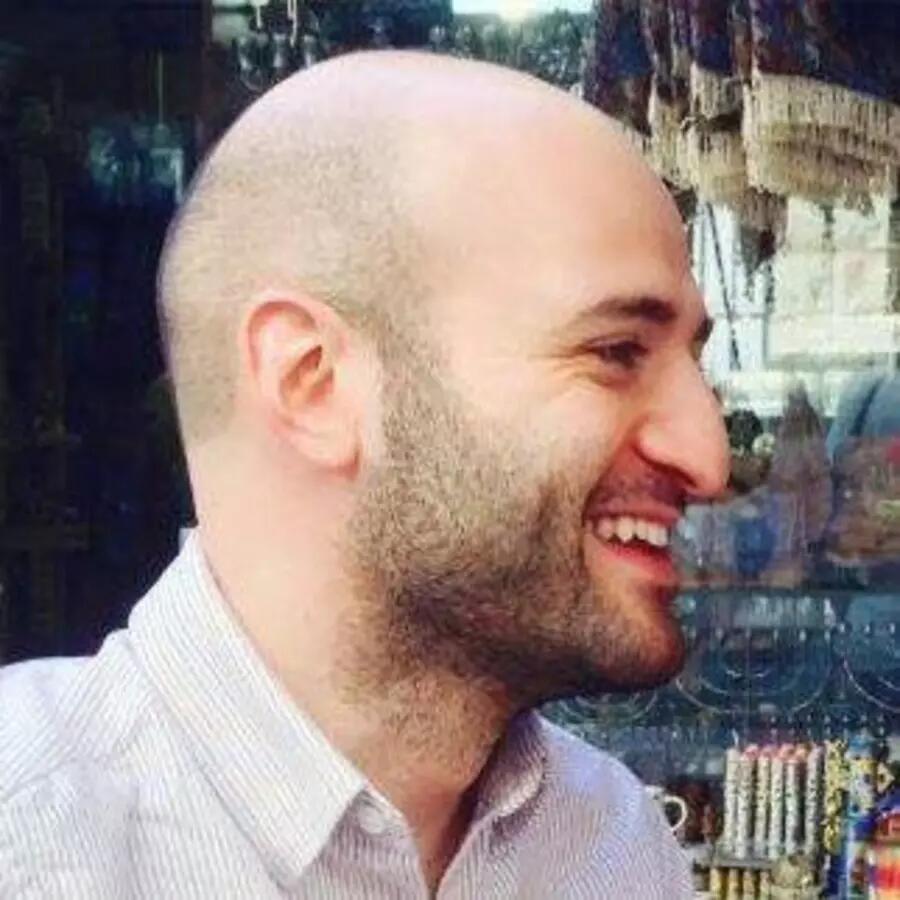
Shervin Ghaem-Maghami is a Doctoral Candidate in the Department of Geography and Planning at the University of Toronto. His research centres on the intersection of immigration and community engagement in urban planning processes, with a focus on facilitating the integration of newcomers by fostering their inclusion in local collective decision-making. His doctoral work explores how municipal planners in the Greater Toronto Area are meaningfully incorporating immigrants into planning processes, how these processes need to evolve in order to best accommodate newcomers’ unique strengths and adapt to their particular needs, and how the engagement of immigrant populations in these types of public participation exercises can both facilitate their socio-economic integration and result in more effective and just decision-making outcomes. Shervin holds a Master of Public Administration from Queen’s University and a Bachelor of Environmental Studies in Urban and Regional Planning from the University of Waterloo. His prior professional experience includes positions in various ministries at the Government of Ontario as well as roles in local government, civil society, and the private sector.

Paul Pritchard (Red River Métis) is a doctoral candidate in the Department of Sociology at the University of Toronto. His dissertation research engages with the politics of home and belonging within the shifting landscape of Indigenous content curriculum in Canadian Higher-Education. He seeks to understand how differently-situated university students engage with and make-sense of the tensions, contradictions, and complexities of belonging and membership on the contested lands their learning takes place. Paul’s research interests are deeply entwined with his teaching and advocacy commitments. He is an award-winning teaching assistant and is active in developing curriculum and pedagogical practices informed by Indigenous ways of relating that challenge and de-naturalize settler-colonial forms of belonging to/in Canada. Paul’s graduate research has been generously supported by a SSHRC Doctoral Fellowship, an Ontario Graduate Scholarship, a Mary H. Beatty Fellowship, a SSHRC Canadian Graduate Scholarship (Masters), a Raymond Breton Graduate Scholarship, and his MA research received the R.F. Harney Award for Outstanding Conference Paper in 2017. He holds an MA (Sociology) from the University of Toronto and a BA (Sociology) from Dalhousie University. When not doing academic work, you can find Paul on adventures with his dog, working on his off-grid cabin, or getting his hands dirty in UTSC’s Indigenous Garden.

Lucia Nalbandian is a PhD student in the University of Toronto’s Department of Political Science and a Research Affiliate with the Canada Excellence Research Chair in Migration and Integration Program at Toronto Metropolitan University. Lucia’s research explores the use of emerging technologies in migration management. Lucia holds an Honours Bachelor of Arts in Political Science and Public Law from the University of Toronto and a Master of Arts in Public Policy and Administration from Toronto Metropolitan University. By day, Lucia spends her time with the brilliant minds at Deloitte. Positioned in the Public Sector Transformation team, Lucia works with her colleagues to help government and public sector clients develop, modernize, and transform their strategies, policies, programs, and services. Lucia’s research aims to extend the limited scholarly and public knowledge on advanced digital technology (ADT) use in migration governance and discover why states use ADTs to address certain migration issues rather than others. Lucia is eager to explore whether, when, and how ADTs may be leveraged to address migration challenges and where they may fail to address the root causes of migration challenges while creating new or exacerbating existing challenges, including violating human rights (including privacy), disguising racism, misrepresenting data, and short-circuiting decision-making. Lucia’s research explores the role of non-state actors in the development and use of technological solutions to manage migration and asylum, contributing to broader debates on the role and ethics of non-state actors in global governance and policy decision-making. Lucia aims to advance knowledge related to the use of technology to manage migration by providing empirical evidence to further explore related theoretical questions.
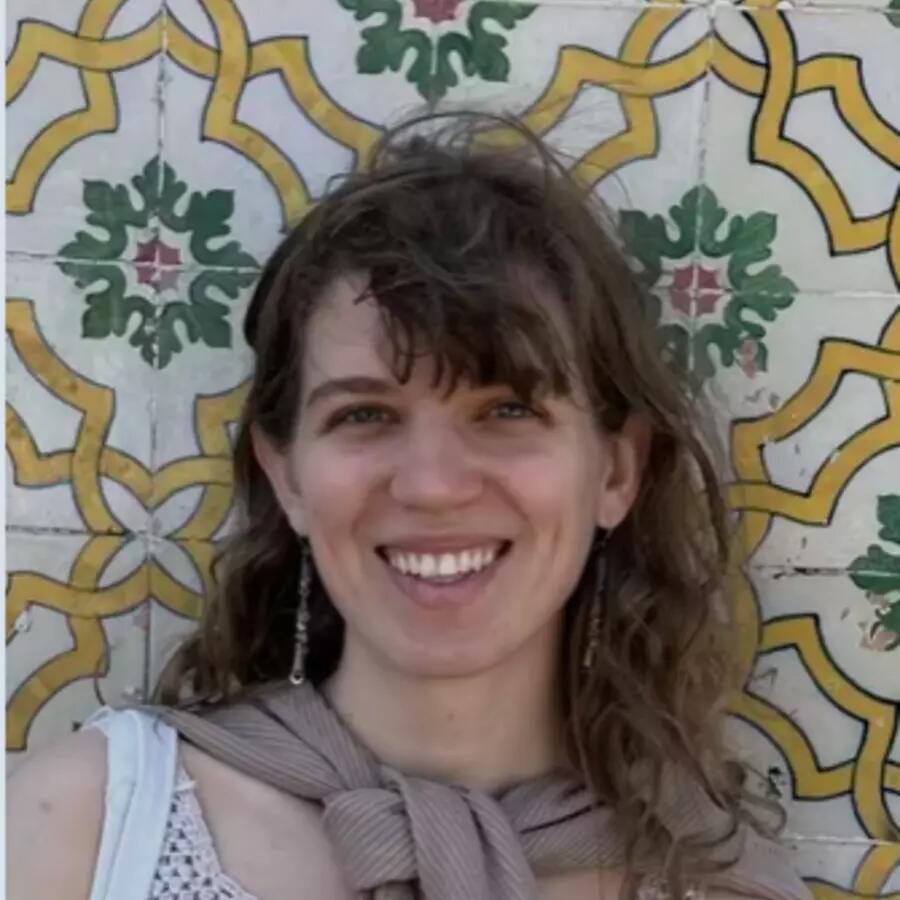
Ioana Zamfir is a master’s student majoring in history at the Centre for European, Russian, and Eurasian Studies of Munk School of Global Affairs and Public Policy where she holds a SSHRC Canada Graduate Scholarship. Her broader research interests include Soviet history, Russian disinformation, authoritarian influence, and issues of minorities in Central and Eastern Europe. She holds an Honours BA in history and international development from McGill University. Beyond academia, Ioana has worked at Political Capital Institute in Budapest, Hungary, and for the University of Toronto Libraries as a Digital Public Historian. Her article “Between Holy Church and Holy Human Rights: Life Stories of the Romanian LGBTQ+ Community after 1989 until Romanian Accession to the European Union” was recently published in Aspasia: The International Yearbook of Central, Eastern, and Southeastern European Women's and Gender History. Her master’s thesis concerns queer life in Belarus and Moldova as understood from firsthand accounts obtained through private archives and interviews conducted in the region. Written as a history from below, her work tackles the differences in the Soviet republics’ approaches to nonconforming sexualities and the impact of state policies on queer lived experiences. She hopes to revise the common narrative that queer history is homogenous across the former Soviet Union and largely defined by communist repression. Her study on Belarus and Moldova also ties into a broader regional discussion of identity formation and the communist experience’s impact on post-Soviet national identities largely rooted in heterosexuality and patriarchy.
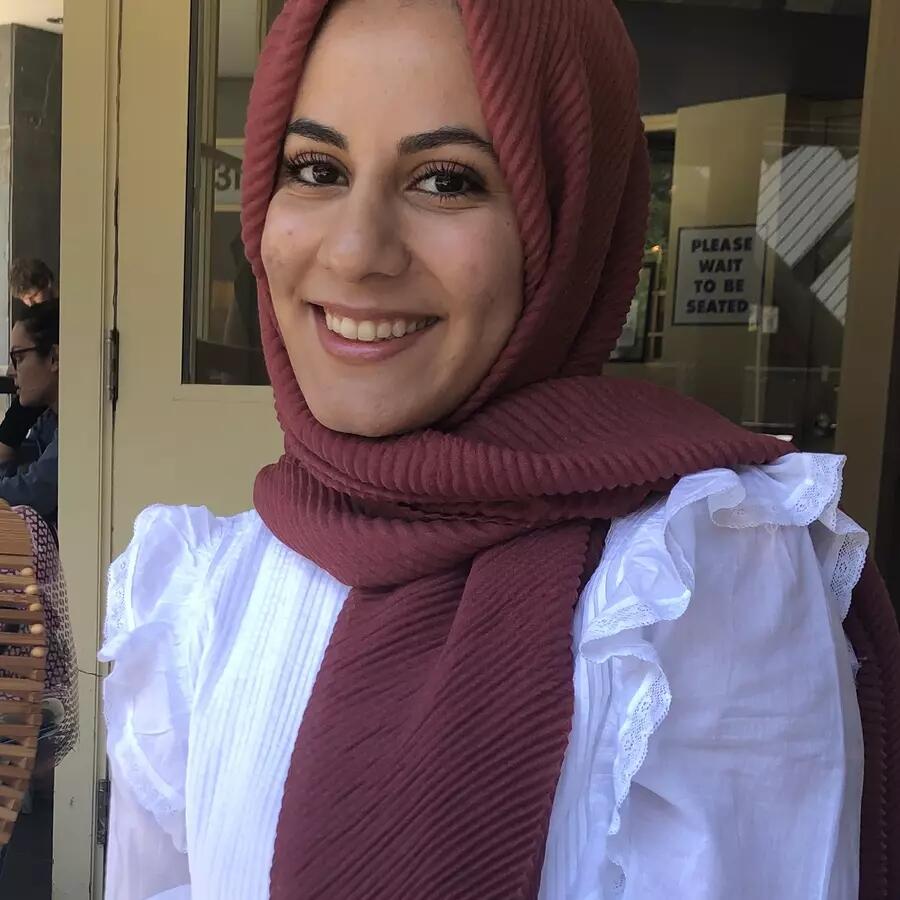
Laila Khoshkar is a PhD candidate in the Political Science Department at the University of Toronto. Through her dissertation, Laila seeks to uncover what conditions are required to make human rights meaningful. Her current research focuses on the relationship between human rights and social belonging, especially as experienced by resettled refugees in Canada. Laila's academic interests have always undulated toward the refugee question, spanning from the Canadian individual's moral responsibility to respond to the refugee crisis to the policy-level changes needed to adequately address refugees' mental health needs. Beyond academia, Laila volunteers with refugee-serving organizations in Toronto. She is committed to a vision of Canadian society that is genuinely inclusive and respectful of diversity.
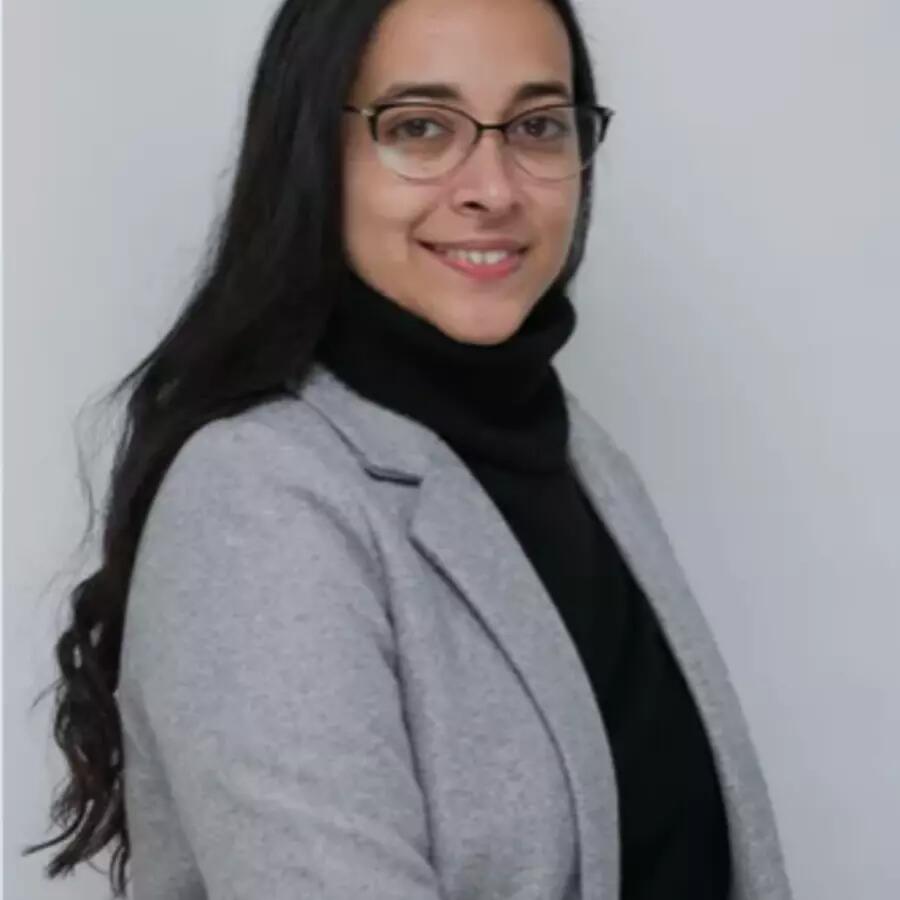
Kriti Sharma is a Master of Public Policy candidate at the Munk School of Global Affairs and Public Policy and a research fellow at TELUS. Kriti is also an economist by training, a public speaker by passion, and most of all, an aspiring researcher. She previously earned a Masters of Philosophy degree in Economics at the Punjab University in India. Kriti’s research interests are situated at the intersection of economics and social systems. She is particularly interested in the processes of social and economic integration (and segregation) of racialized communities and immigrants in Canada, especially those from South Asia. Her research project on Punjabi youth mobility towards Canada received the 2023 Richard Charles Lee Insights through Asia Challenge. Apart from this, her current research projects focus on social trust, perceptions of income inequality, stakeholder capitalism, and the future of work.

Koby Song-Nichols is a PhD candidate in history with a collaborative specialization in food studies at the University of Toronto. His work has been published in Food, Culture, & Society, Gastronomica, and Chinese America: History & Perspectives. He has presented his research internationally, including at the Oxford Food Symposium, Mills College, and the Università di Scienze Gastronomiche di Pollenzo. He also co-created the "Food and Activism" section of Gastronomica as a way to facilitate more active dialogue between food scholars and food activists. His dissertation research examines how Chinese food and foodways have fed intercultural, intergenerational, and diasporic relations and communities in the multicultural cities of Toronto, Montreal, and Phoenix. More specifically, he documents and analyzes how Chinese Canadian restaurateurs fought for Toronto’s Chinatown, how Eurasian sisters from Montreal used food writing to express diverging identities, and how Chinese Arizonan grocers created communities that shaped the wellness of later generations. By placing these histories within the same frame, his research amplifies Chinese Canadian and Chinese American voices in order to recognize and reimagine the many ways that we all relate to one another.
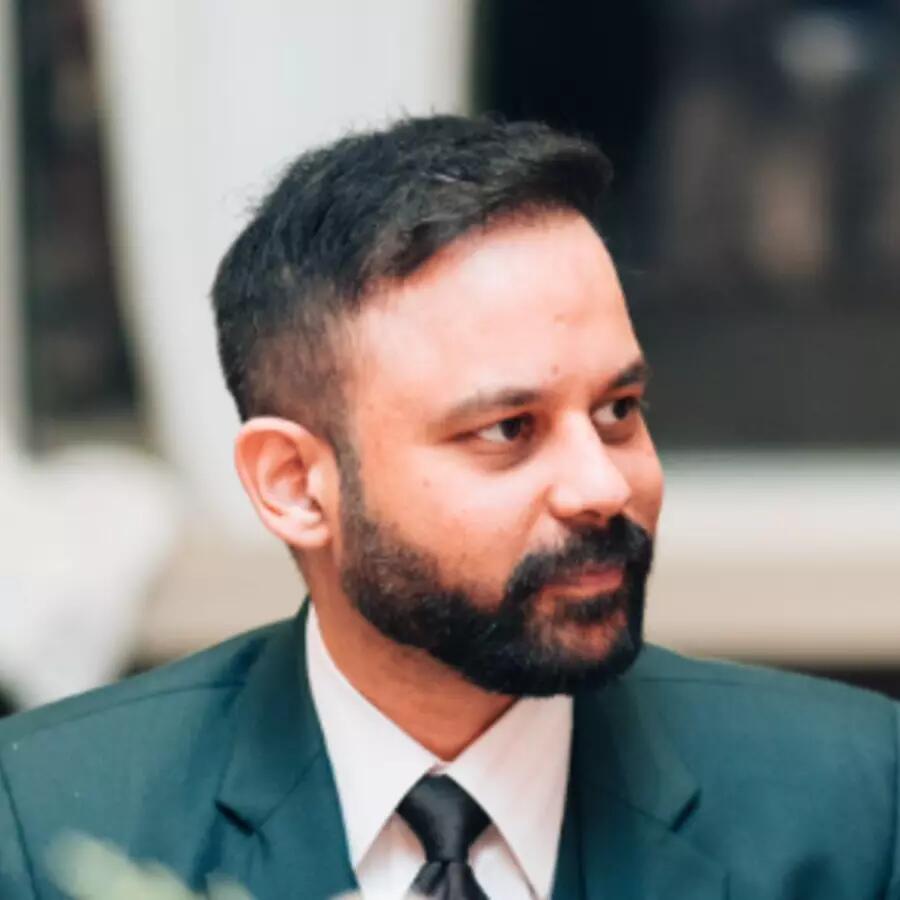
Hammad Khan is a Ph.D. candidate in the department of sociology at the University of Toronto. His research interests lie at the intersection of immigration, race & ethnicity, political sociology, and post-colonialism. His dissertation research examines the nuances of national identity and belonging for Pakistani-newcomers in Canada, with implications on how racializing legacies of colonialism continue to inform settlement processes. As part of this project, Hammad also works with settlement counsellors who are themselves first-generation, racialized Canadians in examining how inequities associated with settlement are (re)produced as an inherent outcome of Canada’s current immigration model. This research also investigates the ways in which narratives of whiteness as authentically Canadian (re)produce the logic of inherently white ‘Canadianness’ that remains out of reach for Pakistani-newcomers. This research seeks to problematize how national identity and belonging are conceptualized, measured, assessed, and reported for a historically marginalized and racialized Pakistani diaspora in Canada. Methodologically this work includes over 80 life-history interviews with Pakistani-newcomers (< 5 years in Canada) and first-generation settlement counsellors. Finally, Hammad’s work includes a significant reflexive element, as he draws from his own experiences with immigration and settlement in Canada, and centers himself in his research as a first-generation Pakistani-Canadian. Hammad’s dissertation research is supported with a SSHRC doctoral fellowship. He has also presented developing papers associated with this work at several conferences including the Annual Canadian Sociological Association (CSA) Conference.

Dana Logan is a second-year Master of Industrial Relations and Human Resources candidate at the University of Toronto. Through personal and professional experiences, she has been exposed to and is well versed in Canadian labour practices and relations. This working knowledge of Canadian labour relations cultivated her interest in employment law, and the interaction of labour and policy as a means of achieving citizenship. Of particular interest to her is how pathways to citizenship and membership are offered and viewed through different forms of labour. Completing a Collaborative Specialization in Ethnic, Immigration, and Pluralism Studies, her research interests lie at the intersection of labour, identity, and membership. Additionally, she intends to explore the extent to which the labour market and economic trends influence immigration policy making and implementation. She has a Bachelor of Arts in English & Linguistics from Carleton University.
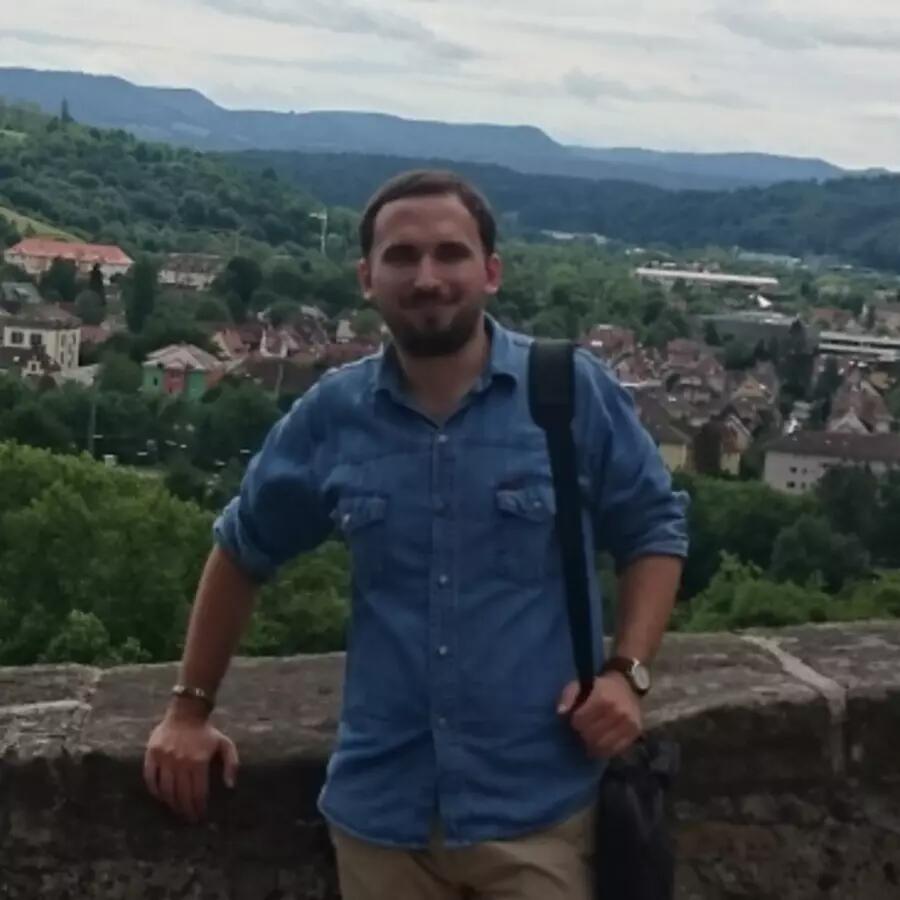
Christos Orfanidis is a PhD Student in the Department of Leadership, Higher & Adult Education at the University of Toronto. During his tenure as R.F. Harney Graduate Research Fellow, he will be launching a study exploring the strategic incompatibility between universities’ increasing investment in internationalization plans that promote global student mobility and their institutional ethical adherence to the global sustainable development goals and achievement of net-zero emissions. This project will explore the possibility of strategizing around alternative methods of internationalization that do not involve environmentally harmful movement, and it will examine the necessary groundwork for greater ethical institutional policy integration between internationalization and sustainability.
2022-23
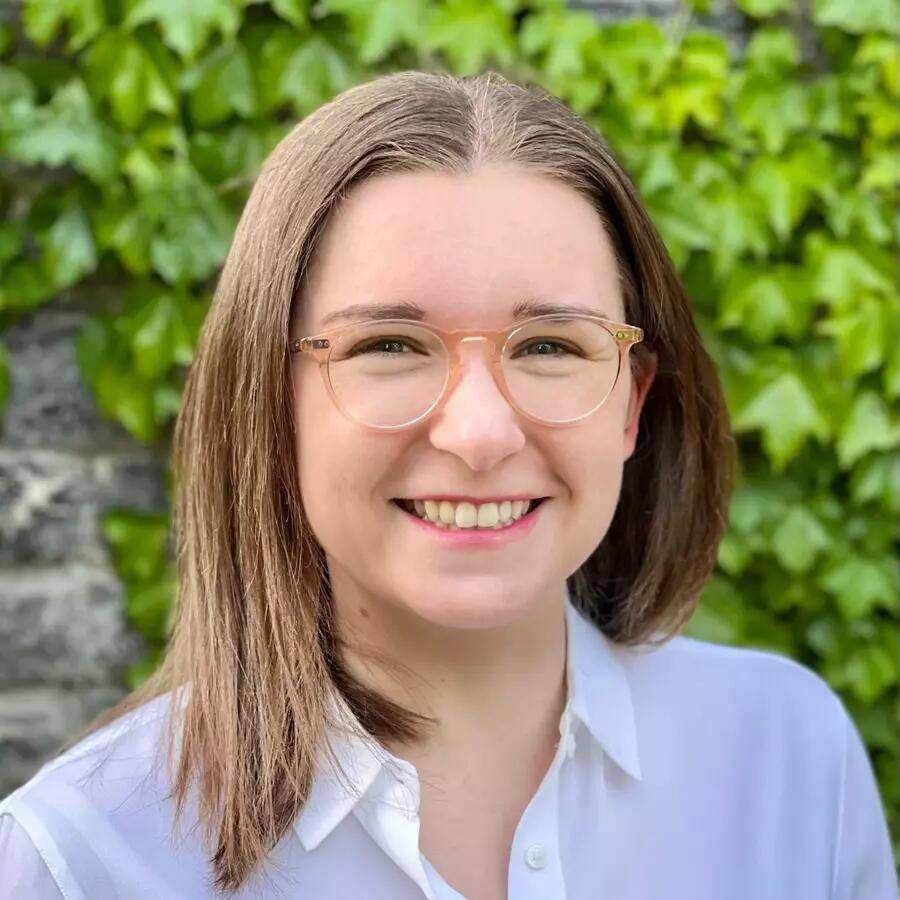
Lauren Catterson is a PhD candidate in the Department of History at the University of Toronto. Her dissertation examines allegations of misconduct and abuses of power levelled against United States immigration officials in the early twentieth century, using these cases to explore limitations on the exercise of power and authority by such officials and how the early U.S. immigration bureaucracy policed its employees. It also analyses public criticism of the U.S. Immigration Service and reform efforts within the agency. More broadly, her research interests include migration, immigration and border control, citizenship, the modern American state, and gender and sexuality. Lauren’s PhD research has been generously supported by the Immigration and Ethnic History Society, Ontario Graduate Scholarships, and the University of Toronto’s Department of History, Jackman Humanities Institute, and Centre for the Study of the United States.

Sara Hamed is a PhD Candidate in the Department for the Study of Religion. She holds a BA in Anthropology and an MA in Religious Studies, both from McMaster University. Her doctoral research brings together the anthropology of Islam, North American religion, organization theory, as well as rhetoric and persuasion studies. Currently, her ethnographic research focuses on the dawah or persuasion practices of national charitable Islamic organizations in Canada in relation to the state, the non-Muslim majority, and the Muslim communities they serve. Specifically, she explores how these organizational entities themselves agentively inhabit the Islamic tradition and contribute to the making of Canadian Islam, exceeding the actions of individual Muslim practitioners. Sara is a two-time recipient of graduate level funding awards from the Social Sciences and Humanities Research Council (SSHRC) of Canada. She is also an acclaimed course instructor and award-winning teaching assistant at the Department of Historical Studies at the University of Toronto, Mississauga.

Sara Hormozinejad is a Ph.D. student in the Department of Sociology at the University of Toronto. Her research examines the elastic boundaries of membership and belonging associated with international migration and settlement. Her SSHRC-funded dissertation project investigates the puzzling return migration from the Global North to the Global South to shed light on the complexities of the migrant integration process and to reveal nuances in migrants' experiences of belonging/non-belonging and inclusion/exclusion in socially diverse receiving societies such as Canada. Sara has a B.A. and an M.A. in anthropology from the University of Calgary and the University of Toronto, respectively. Sara was a teacher in her country of origin, Iran, and she enjoys teaching English as a Second Language as part of volunteering programs which support newcomers in Canada.

Laura Lam is a PhD student at the Centre for Industrial Relations and Human Resources at the University of Toronto where she holds a SSHRC J.A. Bombardier Canada Graduate Scholarship. She is a researcher at the Canada Excellence Research Chair (CERC) in Migration and Integration program and her research interest is at the nexus of migration, precarious employment and gender. In addition, she has conducted and published research on venture capital funding’s impact on societal wellbeing and collaborated with researchers on a qualitative ethnographic project on understanding employment trajectories of migrant women entrepreneurs. She has previously worked in a marketing capacity with various startups and technology accelerators, and currently co-owns an employment-based social enterprise based in Vancouver, The Good Chocolatier.
Laura’s research interest is in migration and precarious employment, her current research focus is on the use of app-based digital labour platforms in care work settings. She is also involved in learning how care workers in precarious employment settings find ways to achieve better working conditions and outcomes. She is also engaged with studying the labour market trajectory and outcomes of new migrants to Canada through the use of longitudinal administrative data
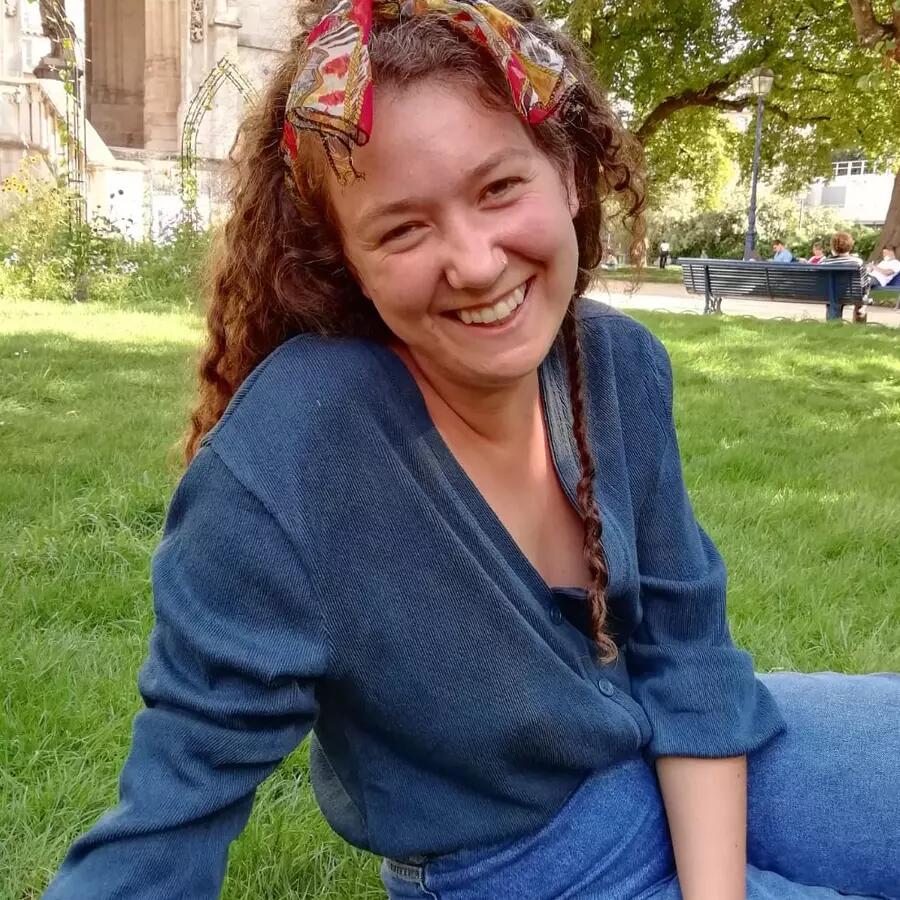
Sophie Marois is a PhD student in Sociology at the University of Toronto. Her main research interests lie at the intersection of political sociology, critical race studies and the sociology of punishment. She is the recipient of a Canadian Graduate Scholarship (SSHRC), which will support her dissertation project on the commemorative politics of the 2017 Québec City mosque massacre. In addition to her dissertation, Sophie is involved in a number of research projects on responses to mass violence, collective memory and terrorism. Off campus, she is a board member of the Ligue des droits et libertés—section de Québec and a community organizer for the annual commemorations of the mosque shooting in Québec City. She holds an MA in Sociology from Laval University.

Hazim Zahir Mohamed is a PhD Student in the Department of Political Science at the University of Toronto. His dissertation examines the ethical and practical problems generated by questions of membership in contemporary political communities. As such, it aims to investigate the extent to which the legal foundations of modern citizenship and cross-border mobility are in tension with the normative language in which the concept of citizenship was classically understood, both in order to understand how this tension plays out in empirical cases where political identity is at stake as well as to explore how it can be potentially bridged or reconciled. His previous work includes an ethnographic study on expatriate communities in the Persian Gulf that investigates the impact of exclusionary state mechanisms on attempts by non-citizens to secure affective linkages to their host countries. His broader research interests include: the thought of Hannah Arendt; the resurgence of concerns about national identity; the promises and limitations of cosmopolitanism, and the role of ethics and normative considerations in political life. His work was presented at the American Political Science Association, the Arab Center for Research and Policy Studies, and the MAPSS Academic Graduate Conference at the University of Chicago. Beyond academia, Hazim has worked in Communications and Public Affairs, particularly in the Higher Education sector.

Peter Sekyere is a political science Ph.D. candidate at the University of Toronto, specializing in International Relations and Development Studies. His research interests include African politics, human rights in Africa, and ethnic and secession struggles in postcolonial Africa. His doctoral research examines the strategic behaviour of secession movements in independence struggles in postcolonial Africa. The study explores the role of diffusion theory in explicating external linkages among secession movements in postcolonial Africa to provide new dimensions of understanding secessionism. Peter was a fellow of the Trudeau Center for Peace, Conflict and Justice program for the 2021-22 academic year. Before enrolling in the doctoral program, Peter was a fellow of the Norwegian Government Quota Scholarship program in the University of Oslo’s Human Rights Master’s program and served as an intern at Ghana’s national human rights commission, the Commission on Human Rights and Administrative Justice. Peter holds a Bachelor of Arts (Hons) in Political Science from the University of Ghana, a Master of Philosophy in Human rights from the University of Oslo, Norway, and a Master of Arts in International Relations from Brock University.
2021-22

Dur-e-Aden is a PhD candidate in the department of Political Science. Her major and minor fields are International Relations and Comparative Politics, respectively. Her research examines the mobilization of individuals within the radical right-wing groups in Canada through a gendered lens. She is a SSHRC CGS Doctoral Scholar, a Junior Affiliate at the Canadian Network for Research on Terrorism, Security and Society (TSAS), and a Fellow at the Canadian Global Affairs Institute (CGAI). Apart from being a graduate student, she has completed multiple work terms with federal departments such as Public Safety Canada, Global Affairs Canada, and the Department of National Defense. Her goal is to bridge the academic/policy divide by gaining experience in both domains.

Gözde Böcü is a Ph.D. Candidate in Political Science at the University of Toronto specializing in Comparative Politics and International Relations. Her research interests include transnationalism, migration, and authoritarianism. In her dissertation project, Gözde explores authoritarian diaspora policies and their effects on diasporas from a comparative perspective. Currently, she is working towards completing her dissertation project by conducting multi-sited fieldwork. In addition to her dissertation project, Gözde is involved in several academic projects on transnational repression, diaspora mobilization, and kinship and citizenship policies of authoritarian home states. Prior to joining the Ph.D. program, Gözde held several research fellowships and national scholarships in Germany. She has a B.A. and an M.A. in Sociology and Political Science from the Humboldt University of Berlin in Germany.

Ella Hartsoe is a Master of Global Affairs Candidate at the Munk School for Global Affairs & Public Policy at the University of Toronto. She has worked as a labour union leader and community organizer in Canada and the United States, and on global labour migration policy at the International Organization for Migration. She has an honours Bachelor’s degree from McGill University and holds citizenships of both the United States and Mexico. Ella’s research interests lie at the intersection of social movements and international law. Completing a Collaborative Specialization in Environmental Studies, her MGA research will investigate the roles and responsibilities of North American states and changing international frameworks on climate migration. She is also interested in economic development, international labour law, and human rights discourse.
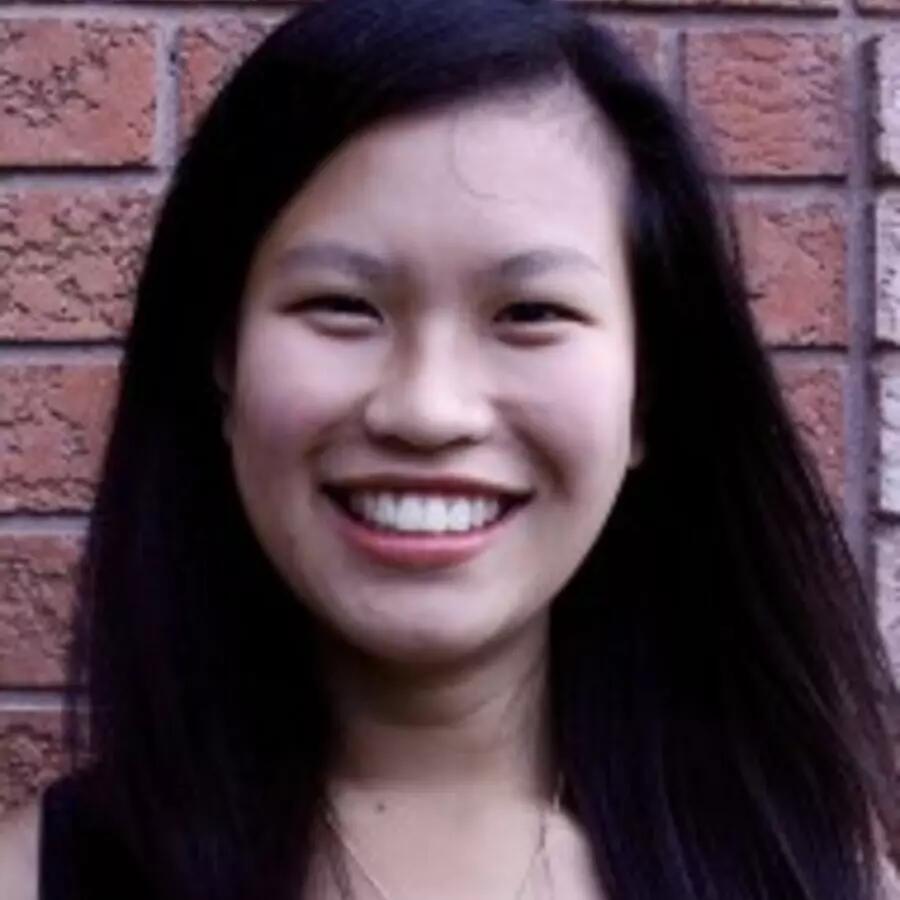
Melanie Ng is a third-year PhD student in the History Department at the University of Toronto, and a Museum Educator at the Royal Ontario Museum. Her research critically analyzes the power dynamics that transpacific empires, racial thinking, and state legal apparatuses had over the movement of Chinese migrants across imperial boundaries and state borders during the late-nineteenth to late-twentieth century. In particular, she investigates the clandestine migration networks that transpacific Chinese migrants to and through Canada created to challenge racist and exclusionary immigration laws, as well as relied upon to establish new identities and communities. Her research interests include: race, racism, migration, histories of Asian America and Asian Canada, Asian settler colonialism, transpacific empires, diaspora, legal history.

Sarah Panjvani is a Dual Degree Candidate in the Master of Global Affairs at the Munk School of Global Affairs & Public Policy at the University of Toronto and Master of International Affairs at the Hertie School in Berlin, Germany. Her research interests lie at the intersection of transatlantic affairs, migration policy, and diversity and inclusion. She is a recipient of the Canadian Graduate Scholarship (2021-22), which will support her thesis project on the implementation of Canada’s Feminist Foreign Policy in Europe. Prior to joining the Master’s program, she gained professional experience in the public sector at the Embassy of Canada to Germany, the New Zealand Embassy in Berlin, and the International Organisation for Migration in Vienna. Sarah holds a Bachelor’s degree from McGill University.

Jessica Stallone is a Ph.D. student in the Department of Sociology at the University of Toronto. Her research examines the racialization of Muslims—and their cultural and religious practices— in English Canada and Quebec. She investigates how the politics of race and gender are embedded in public debates such as the Quebec Charter of Values, Bill 21 and the wearing of the niqab at the citizenship ceremony. She is currently investigating nativist logics that drive Islamophobic narratives on social media. Jessica is the session coordinator and co-organizer for the Race and Ethnicity Research Cluster at the Canadian Sociological Association. She has been awarded a Quebec grant (FRQSC) to support her research on anti-Muslim sentiment in Canada.

Dorottya Szekely is a second-year Master of Global Affairs student at the Munk School of Global Affairs & Public Policy. Dorottya has spent extensive time working with refugees in Toronto’s newcomer settlement sector, as well as volunteering with asylum-seekers in Paris, France. Currently, she is an intern with the Global Migration Data Analysis Centre, part of the International Cooperation & Partnerships division at the International Organization for Migration. She also holds an Honours Bachelor of Arts degree from the University of Toronto where she majored in Political Science, with a double minor in Sociology, and Women and Gender Studies. Dorottya’s main research interests lay within the fields of migration, disseminating populist nationalism and sustainable development. Recently, she has been become interested in the growing relationship between mobility and global inequality, and hopes to continue researching the effects of the digitalization of borders on migrants.

Samia Tecle is a Sociology PhD candidate at the University of Toronto. Though born and raised in Toronto, Samia has had the privilege of engaging daily with migrants, refugees and newcomers through her varied professional and personal life experiences. Her doctoral research examines the relationship between mobility and global inequality, and in particular, Canada’s management of refugee migration. By investigating Canada’s humanitarian approaches to extend refugee protection to asylum seekers both inside Canada and abroad, Samia hopes to understand Canada’s refugee programs in tandem. Her research interests include: race, migration, diaspora and colonial histories.

Man Xu is a Sociology PhD candidate at University of Toronto. Her research interests include studies of global migration, transnationalism, racial and ethnic identity. She has conducted research in the Middle East and in China on the reception of Syrian refugees in Lebanon, media discourses about refugees in Western host societies and Chinese Muslim diaspora’s transnational engagement with the Middle East. Her dissertation project examines the trade activities and social relations of Hui Muslim traders in Yiwu, China. This research sheds special light on the ways in which Hui traders in Yiwu build social connections and develop tactics to navigate various formal rules and informal economic practices of global trade business. It also examines how cross-border interactions and transnational entrepreneurship impact on Hui trader’s sense of belonging to the national and global Islamic communities.

Edward Escalon, Jr. is a PhD Candidate in the Department for the Study of Religion. Edward’s interests lie at the intersection of affect theory, North American religion, and the anthropology of religion. His ethnographic research focuses on the experiences of American Evangelical missionaries who work with street-connected youth in Tegucigalpa, Honduras. Edward traces the affective attachments formed between Honduran youth and Americans and how these attachments complicate the social and political commitments of North American Evangelicalism. In 2019, Edward received a U.S. Fulbright Student Research Grant in Anthropology. He is an award-winning Teaching Assistant at the Centre for Diaspora and Transnational Studies and a Course Instructor at the Department of Historical Studies and the University of Toronto Mississauga. Edward holds a BA in the Comparative Study of Religion from Harvard College and an MA in Church and Society from Union Theological Seminary in the City of New York.